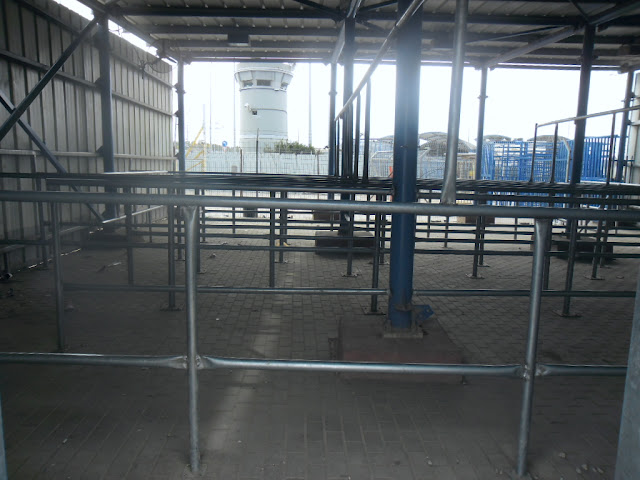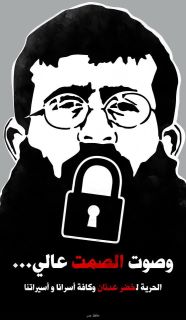-
“It’s Hevron. It’s very dangerous” warn occupation forces in Al Buwayra
by Pascaline 12 February 2012 | International Solidarity Movement, West Bank On Sunday 12 February, about 200 settlers, mainly youth, gathered at the bottom of Assima settlement in Al Buwayra to cultivate and steal Palestinian land with accompaniment by the Israeli military. They were carrying Israeli flags and posters. The military opened a gate leading […]
-
Meitar Checkpoint: Women demand an end to strip-searching by Israeli military and prison administration
12 February 2012 | International Solidarity Movement, West Bank A demonstration was held Sunday, February 12th at the Meitar checkpoint north of Beer Sheba in solidarity with Palestinian prisoners in the Naqab (Negev) region as well as their family members who must pass through this checkpoint to visit them. The demonstration was organised by the […]
-
Take Urgent Action: Appeals Decision Delayed as Khader Adnan Dying to Live
12 February 2012 | Samidoun- Palestinian Prisoner Solidarity Network Khader Adnan, Palestinian political prisoner being held under administrative detention, is now entering his 57th day of hunger strike and facing a severe health crisis. Despite the fact that Khader Adnan risks death with every minute that passes, the Israeli military court system is delaying decisions […]
Action Alert An Nabi Saleh Apartheid Wall Arrests BDS Bethlehem Bil'in Cast Lead Demonstration Denial of Entry Ethnic Cleansing Farmers Gaza Global Actions Hebron House Demolition International law Israeli Army Jerusalem Live Ammunition Nablus Ni'lin Prisoner Ramallah Rubber-coated steel bullets Settlement Settlers Settler violence Tear-Gas Canister Video


